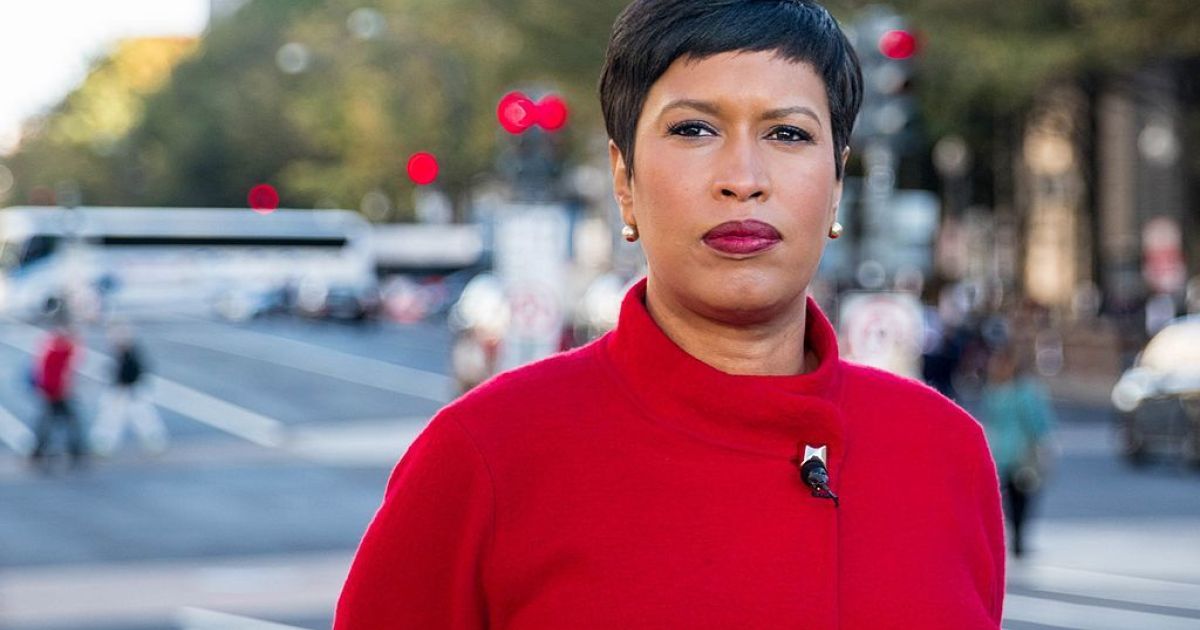
District of Columbia Mayor Muriel Bowser unveiled a sweeping new proposal Thursday that would legalize cannabis sales for adult-use, calling the current city law that allows possession of cannabis, but not its sale, “untenable.”
The Safe Cannabis Sales Act of 2019 would also automatically seal records related to most past cannabis crimes; put all new revenue from a 17% sales tax on cannabis into affordable housing preservation and other programs in low-income areas; ensure that 60% of new cannabis business owners and their employees are D.C. residents; create jobs in areas most affected by America’s drug war; and allow for home delivery.
The Act only automatically seals past misdemeanor cannabis possession convictions. Those convicted of selling larger quantities of cannabis, or if their cannabis crime was combined with other charges, would not have their convictions sealed.
“We have the opportunity to right wrongs which for decades have destroyed families here in D.C. and especially in vulnerable neighborhoods,” Bowser said at a news conference at a medical cannabis dispensary in the District.
The elephant in the room, though, is a Congressional appropriation budget “rider” that would bar the District from enacting Bowser’s legalization bill. A ballot initiative passed by D.C. voters in 2014 legalized the possession of cannabis, and home cultivation, but was complicated by Representative Andy Harris, a Maryland Republican. Harris introduced a budget rider that barred District officials from taking any further steps to tax and regulate the sale of cannabis. In the meantime, entrepreneurs have sought to introduce sales in roundabout ways, for example, “gifting,” or offering cannabis in exchange for the sale of another item, like a T-shirt.
SUBSCRIBE TO CANNABIS WIRE’S MORNING NEWSLETTER
Original news and analysis from veteran journalists—straight to your inbox every weekday morning. (This newsletter is free now, but will soon be available only to subscribers.)
Bowser said, though, that the city should prepare in advance of the rider’s expected removal, which is supported by key House Democrats and is a goal of D.C.-area officials after Democrats took back the House in the midterm election. In 2015, D.C. Attorney General Karl Racine said city officials could be barred from even hold hearings on cannabis legalization. On Thursday, Bowser called on D.C.’s City Council to hold hearings on the measure and said that she believes the city is on solid legal footing to do so, though she declined to share details of a conversation she had with Racine on the topic.
D.C.’s non-voting US House delegate, Eleanor Holmes Norton, has long pushed to abolish the rider and, along with other city officials, for Congress to grant D.C. full statehood. “With Democratic control of the House, I am confident I can remove the recreational marijuana commercialization rider from the House’s upcoming fiscal year 2020 D.C. Appropriations bill, which will place D.C. in a strong negotiating position with the Senate,” Norton said in a released statement. “It’s time for Congress to get out of the way on a clearly local issue.”
Activists and media in the room questioned whether the mayor’s proposal went far enough in tax allocation and expungement, and by not addressing public consumption spaces. Norton has introduced legislation to address the inability of residents in federally subsidized housing to be able to consume cannabis. (You can read Cannabis Wire’s previous coverage of the housing issue here.)
Asked if the continued ban on public consumption means that the city’s disparate rate of arrests of African Americans would continue even if cannabis is legalized, D.C. Chief of Police Peter Newsham, who also attended the news conference, said numbers from the last available year of 2016 don’t reflect the department’s current policy. “We have changed our process in those cases,” he said. Police now generally write a ticket for the public consumption of cannabis rather than make an arrest, he said.
D.C. Council Chairman Phil Mendelson told the Washington Post he would schedule hearings on Bowser’s proposed bill. But he said D.C. residents shouldn’t immediately count on anything passing anytime soon.
“There’s no question that we need to legalize and regulate sales,” he said. “But citizens should not get their hopes up, yet, because Congress continues to prohibit us from legislating in this area. It’s a ridiculous situation: that citizens may possess small quantities of cannabis, but it’s illegal to buy it. Thanks, Congress.”
Justin Strekal, political director for the National Organization for the Reform of Marijuana Laws, said at the news conference that regulations would ensure consumers have a quality product and are serving only those who are 21 and legally able to consume. “No street dealer has an incentive to check IDs of their customers,” he said.
Further, Strekal added that D.C.’s proposed equity provisions are a step in the right direction. “Too many of our elected officials have been unwilling to recognize the reality of who was suffering under the prohibition of cannabis,” he said.
As for those at the news conference who worry the bill doesn’t do enough, Bowser said, “I think we should all stay engaged in the hearing process.”
As for a timeline, Bowser said she hopes a bill can pass the D.C. Council in about one year to 18 months. If things were different in Congress, Bowser said a faster timeline might be possible.
“The way this won’t be a problem again is: We become the 51st state,” she said.